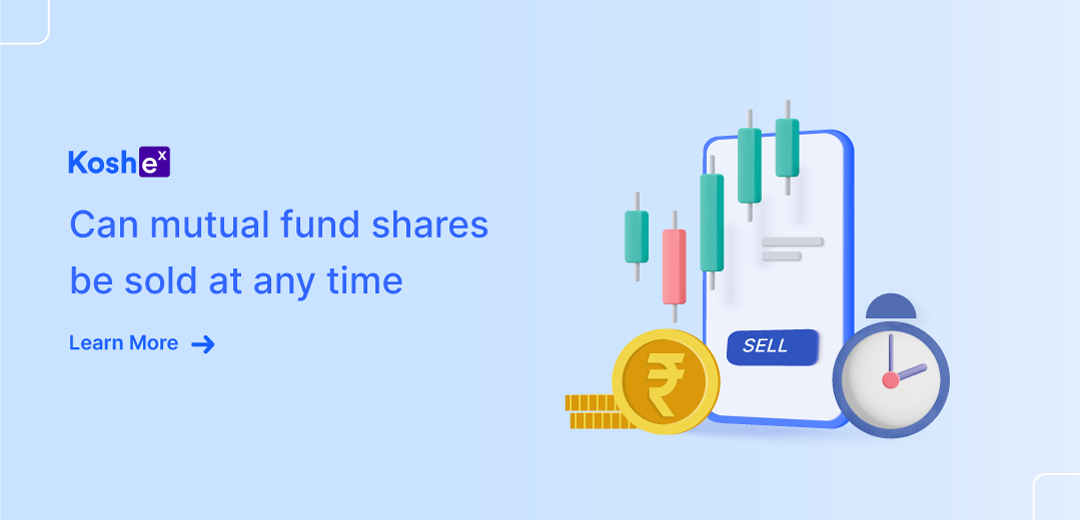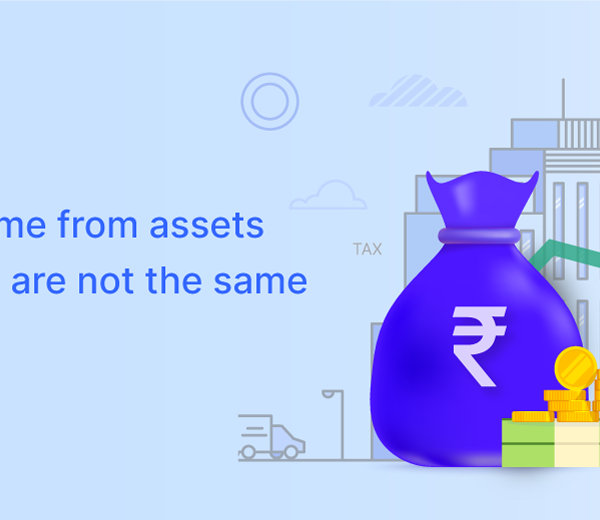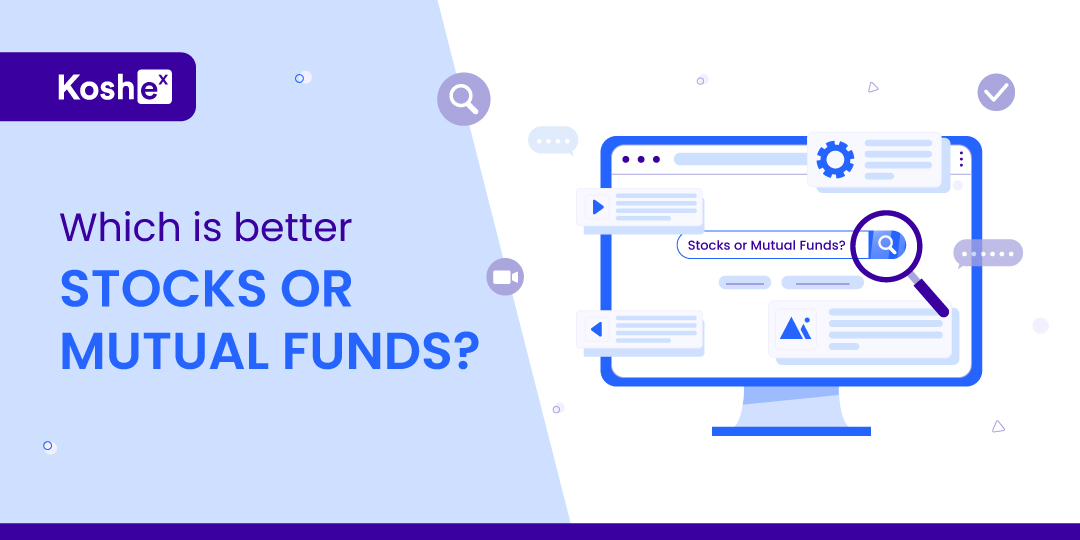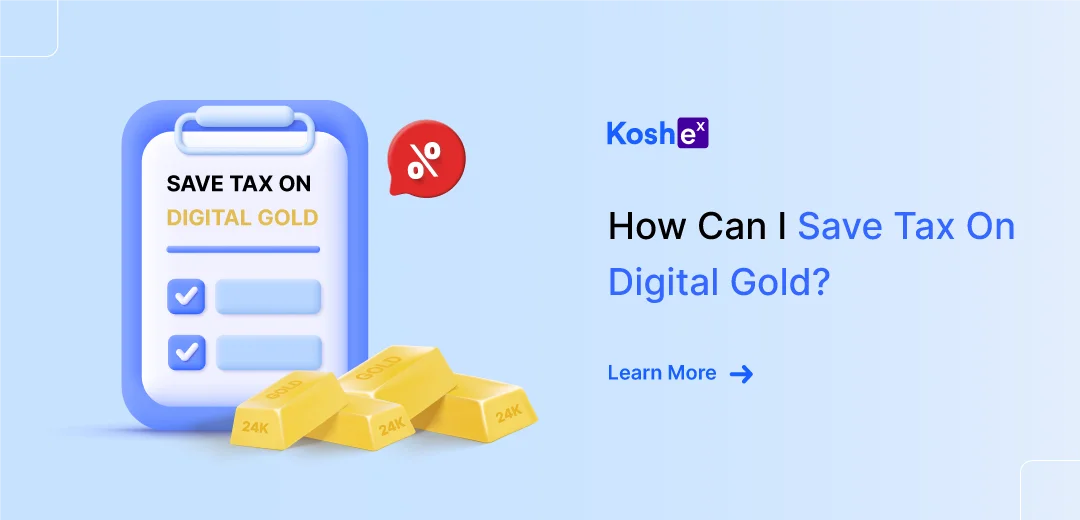Mutual funds have become one of the most attractive destinations to park excess funds and earn lucrative returns. They offer you a diversified portfolio managed by professionals. They are an attractive option for both novice and seasoned investors, offering flexibility, diversification, and the potential for huge upside gains once compounding kicks in.
Understanding the dynamics of selling mutual funds is important for investors, along with other considerations, such as market timing rules, tax implications, and transaction costs.
However, some investors often wonder if they can sell equity mutual funds anytime in India, just like shares. And if yes, then do all the mutual funds offer such flexibility? If you too are wondering the same, then let’s solve your doubts about selling mutual funds anytime with Koshex!
What are Mutual Funds?
Before understanding the selling process and flexibility, it is essential to understand exactly what mutual funds are and how they differ from shares. Mutual funds are investment vehicles that pool money from various investors and use these funds to purchase a diversified portfolio of stocks, bonds, or other securities as per the terms of the scheme.
These funds are managed by professional fund managers who make investment decisions to manage the investor’s funds. They are secure avenues and are regulated by the Securities and Exchange Board of India (SEBI). There are various types of mutual funds, like equity funds, debt funds, hybrid funds, and ELSS funds, that suit each investor’s needs and preferences.
Can You Sell Mutual Funds Anytime?
The answer to whether can you sell mutual funds anytime in India depends on the type of mutual fund you have invested in. Two of the most important categories here are ELSS funds and other mutual funds. Let’s understand both of these funds and how they differ from each other when it comes to selling them:
Also Read: Mutual Fund Redemption
1) Equity Funds (Non-ELSS), Debt Funds and Hybrid Funds
Equity funds (Non-ELSS), debt funds, and hybrid funds can typically be sold at any time during market hours. This means you have the flexibility to sell mutual funds anytime the market is open without facing any restrictions. However, these may be subject to certain charges and exit load (discussed in detail later).
2) Equity Linked Savings Schemes (ELSS) Mutual Fund
ELSS funds are a type of mutual fund that offers tax benefits under Section 80C of the Income Tax Act, 1961. The amount that you invest in ELSS funds can be claimed as a deduction from your income up to Rs. 1,50,000 each financial year. One of the significant and differentiating features of these mutual funds is that they come with a lock-in period of 3 years.
Also read: How Can You Choose The Right ELSS Fund To Save Tax?
During this period, you cannot redeem or sell your ELSS fund units. However, once the lock-in period expires, you can sell ELSS units at any time in a similar fashion as for other mutual funds. Thus, if you are wondering whether you can sell equity mutual funds anytime, then the answer is yes, but only if they are not ELSS or tax-saving funds.
Things to Keep in Mind While Selling Mutual Funds
Before you consider selling a mutual fund anytime, here are some key considerations you should keep in mind:
- Exit Load: Some mutual fund schemes may have exit loads that can be imposed if you sell your units before a specified holding period. These charges vary across different funds, so it is essential to check the fund’s offer document for details.
- Tax Planning: You need to consider the tax implications before you sell mutual funds anytime. Long-term capital gains on equity funds are taxed at a lower rate of 20% as compared to short-term gains. Further, the ELSS funds provide tax benefits only at the time of investment but not at the time of sale. However, long-term capital gains are exempt up to Rs. 1 lakh. You should consult a tax advisor for personalized guidance to minimize your tax liability.
- Market Timing: In most cases, the time you exit the market is pre-determined based on your investment goals and strategy. Timing the sale of your mutual fund units can impact your returns. It is essential to have a strategy and not make impulsive decisions based on short-term market fluctuations.
- NAV Calculation: The Net Asset Value (NAV) of mutual fund units is calculated at the end of each business day. If you redeem your units after the NAV is calculated, you will receive the NAV for that day. Remembering this will allow you to reap maximum gains from your investment.
In a Nutshell
Mutual funds in India offer you the flexibility to sell your holdings, with some limitations depending on the type of fund. While Equity, Debt, and Hybrid mutual funds can generally be sold at any time, ELSS funds have a mandatory three-year lock-in period. However, at the same time, ELSS funds offer you the tax benefits that become the main motive for investors to invest in it.
Before exiting, you should be aware of exit loads, tax implications, and market conditions when deciding to sell mutual funds anytime. Also, the selection of the right platform to invest in also plays an important role in ensuring a seamless investment experience.
Koshex is an investor’s choice when it comes to mutual fund investments. With a user-friendly interface and more than 5000+ different options to select, you can select any fund that aligns with your investment strategy and goals. Sign up now with Koshex!
Frequently Asked Questions
Q: Can you sell mutual funds anytime without any restriction?
A: In the case of most mutual funds, you can sell them during market hours. However, ELSS mutual funds have a mandatory lock-in period of three years due to tax benefits. Hence, you can sell them only after 3 years.
Q: What is an exit load and how does it affect selling mutual funds?
A: An exit load is a fee charged by mutual funds when investors redeem their units before a specified holding period. It is often charged as a percentage. Exit load can reduce the returns on your investment and hence, the lower the exit load, the higher the returns.
Q: What documents do I need to sell mutual funds?
A: With the advent of online trading platforms, selling mutual funds is not tricky anymore. You can directly log in to your stockbroking platform or investment app, select the mutual fund you wish to sell, and proceed with the sale.









Leave a Comment